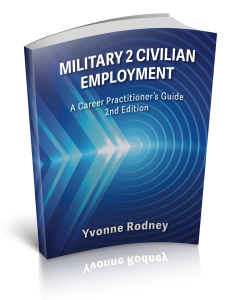|
Getting your Trinity Audio player ready...
|
If Kevin wrote a manifesto, it would be edgy and a bit dark, but the story would embody discipline, integrity, and excellence. After hitting rock bottom, so to speak, these are the values that now undergird his life as an entrepreneur, a husband, a dad, and a citizen. And also support. Kevin is convinced that the tapestry of his life would be so very different if not for the support of his wife and folks with whom he can be totally honest.
Kevin’s decision to join the CAF was practical: He did not graduate high school and his stepdad, who had spent five years in the military, recommended it. On investigation he found that as a combat engineer he had the choice of many options in the military trades. So at 18 years old, he joined up. By the time he was 19, he was deployed to Afghanistan, where he learned to have fun while walking 15 kilometres per day alongside fear. He next did a tour in Ukraine, but after eight years of being hypervigilant every day, he was diagnosed with PTSD. At that time, his partner advised him to seek help, but like a true soldier, he soldiered on, intent on pushing through.
In 2018 Kevin was medically released due to escalating anger management issues. Because he had not finished high school, he did not know what to do, and the nature of the work he had done while in service had made him so hypervigilant he became extremely depressed and suicidal, neglecting his health and appearance. Afraid to even go outside, he felt trapped. So just to change things up, Kevin decided to grow a beard. That did not go well. The beard made his skin itchy, dry, and flaky. Unable to find products on the market to address this problem, he and his wife ended up starting their own business making skin-friendly products.
“Taking care of my appearance had a massive impact on my mental health,” Kevin says. Developing products that would help others and having for himself a new “bearded” persona gave him a purpose. His company became one of the first Veteran-owned companies to sell products to the CAF and they managed that within six months of operation. But that’s not all. Kevin formed a new community with fellow Veterans and other ex-servicemen that gave him a new mission and team. Uniforms, analytical skills, discipline—all elements learned in the military, he has been able to integrate into the business. “We push ourselves to be better in our jobs.”
Kevin’s business created its own ambassador program, a team built along the lines of military structure but with a difference. “We are all vulnerable. My role is giving them permission that it’s okay to be vulnerable.”
Kevin’s biggest military-to-civilian-transition challenge was the not knowing. He did not know that the skills he had learned in the military were transferrable to becoming an entrepreneur. “Lots of Veterans don’t know what they have,” he states with regret. For him, being comfortable with the uncomfortable, remaining mission critical, being okay with stress, and believing that a way can always be found to overcome any obstacle and get the job done—all these are key to being a successful entrepreneur. These also are his best lessons learned since transition: “Be adaptable and persistent. There is a way around the problem. You just got to be creative.”
Kevin would love to see more financial support for Veteran entrepreneurs. While there is funding for Veterans who want to go to school, he believes those like him who are not academically inclined have no access (via the military) to funds to help start a business.
His advice to those transitioning is as follows:
- Connect to a new network of support – a team that will energize and empower you.
- Be honest with people.
- Have people in your corner with whom you can have real talks and no judgment.
- Make sure you’re not scared of asking for help. “I can’t care more about you than you care about yourself.”
- “Lot of vets don’t like “thanks for your service,’” Kevin notes in closing. “It is meant as a sign of respect but it makes them cringe. It was their job, so just be aware that they often don’t know how to react to that.”
And these words encapsulate the sentiment of his heart: “If I had been on my own, without the support, I would not be where I am.”





